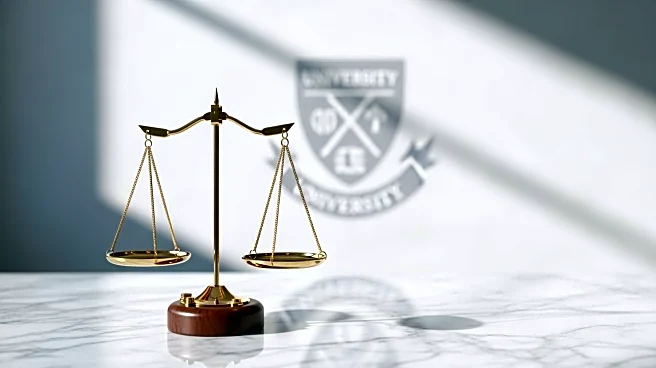What's Happening?
The University of Colorado is facing a challenging situation with its football program under Coach Deion Sanders. Following the departure of key players like Shedeur Sanders and Travis Hunter, the team's performance has declined significantly, with a current
record of 3-6 overall and 1-5 in the Big 12. This downturn has intensified scrutiny on Sanders' $54 million contract extension, signed after the 2024 season when Colorado reached the Alamo Bowl. The contract, which runs through 2029, includes substantial performance-based incentives and perks, making Sanders one of the highest-paid coaches in college football. However, with bowl eligibility now unlikely, the university is confronted with the financial implications of potentially terminating Sanders' contract, which would require a $33.6 million buyout.
Why It's Important?
The situation at the University of Colorado highlights the financial complexities and risks associated with high-profile coaching contracts in college sports. The substantial buyout clause in Sanders' contract serves as a financial constraint, potentially impacting the university's athletic budget and future hiring decisions. This scenario underscores the broader trend in college athletics where institutions are willing to absorb significant financial penalties to align on-field performance with institutional expectations. The decision to retain or release Sanders could have lasting implications for Colorado's football program, affecting recruitment, team morale, and the university's reputation in collegiate sports.
What's Next?
If the University of Colorado decides to part ways with Coach Sanders, it will need to navigate the financial repercussions of the buyout. This decision could prompt reactions from stakeholders, including alumni, fans, and potential recruits, who may view the move as a commitment to improving team performance. Additionally, the university may explore alternative strategies to mitigate financial losses, such as renegotiating contract terms or seeking external funding. The outcome of this decision will likely influence the university's approach to future coaching hires and contract negotiations.
Beyond the Headlines
The situation raises ethical questions about the prioritization of financial considerations over athletic performance and the impact of celebrity influence in college sports. It also reflects a cultural shift where financial penalties are increasingly seen as a necessary cost in the pursuit of competitive success. This development may lead to broader discussions about the sustainability of such financial practices in collegiate athletics and their long-term effects on the sport's integrity.


















